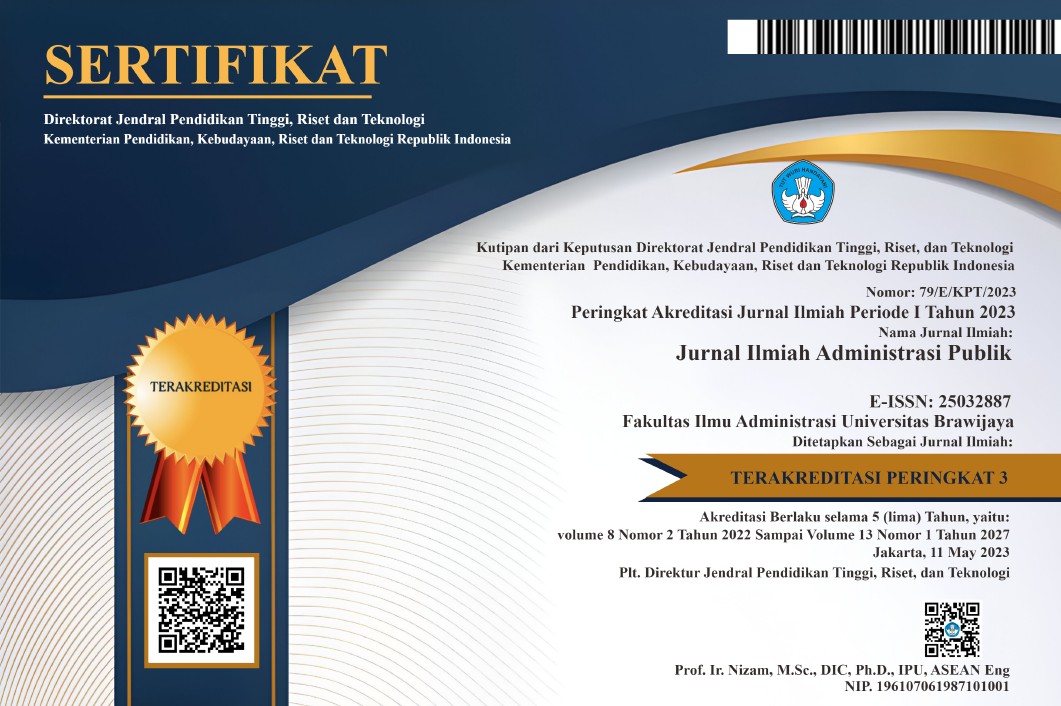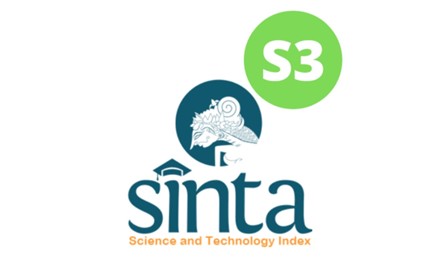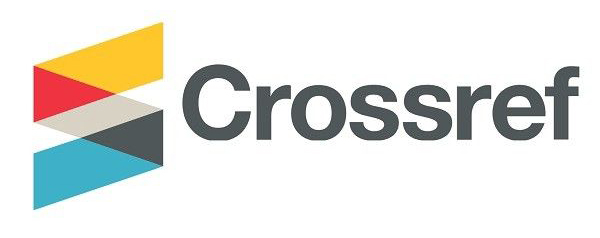How BPS-Statistics Indonesia to Handle The Effectiveness of Information System of Public Budgeting Management?
DOI:
https://doi.org/10.21776/ub.jiap.2021.007.01.4Keywords:
Good Governance, Effectiveness, Public Budgeting Management, BackOffice Information System.Abstract
The BPS-Statistics Indonesia tried to take a step to realize good governance, especially in conducting good budget management by implementing an information system of public budgeting management known as the BackOffice Information System. The purpose of this study is to find out how the effectiveness of the implementation of the BackOffice Information System at BPS. This study uses a qualitative method by conducting case studies in BPS Headquarter (Jakarta). Conducting online interview to 59 operators and users, as well as conducting deep interview to 10 key informants. The result shows that the implementation of the BackOffice Information System is effective and practical because this information system is accurate and timely in presenting data and budget information, integrated with several other information systems. Users and key informants also are satisfied with the performance of this information system. The implementation of Back Office also contributes to increasing the realization of the budget and the achievement of BPS performance and to maintaining the Financial Statements performance: Unqualified Opinion (from BPK-the Audit Board of the Republic of Indonesia).References
Akhmadi, M. H. (2017). Evaluasi Dukungan Organisasi Terhadap Implementasi E-Government: Studi Kasus Sistem Aplikasi Keuangan Negara. Jurnal Manajemen Keuangan Publik, 1(2), 51-62. doi: 10.31092/jmkp.v1i2.144.
Al-Mamary, Y. H., Shamsuddin, A., & Aziati, N. (2014). The Role of Different Types of Information Systems in Business Organizations : A Review by Yaser Hasan Al-Mamary, Alina Shamsuddin , A.H. Nor Aziati. International Journal of Research, 1(7), 333–339.
Blocher, E. J., Chen, K. H., Cokins, G., & Lin, T. W. (2007). Manajemen Biaya Penekanan Strategis. Jakarta: Salemba Empat.
BPS. (2017). Laporan Kinerja Badan Pusat Statistik 2016. Jakarta: BPS.
BPS. (2018). Laporan Kinerja Badan Pusat Statistik 2017. Jakarta: BPS.
BPS. (2019a). Laporan Kemajuan Reformasi Birokrasi Badan Pusat Statistik Tahun 2018. Jakarta: BPS.
BPS. (2019b). Laporan Kinerja Badan Pusat Statistik 2018. Jakarta: BPS.
BPS. (2020). Laporan Kinerja Badan Pusat Statistik 2019. Jakarta: BPS.
Darmawan, D., & Fauzi, K. N. (2013). Sistem Informasi Manajemen. Bandung: Remaja Rosdakarya.
El Gohary, E. M. (2017). E-government Implementation in Developing Countries: A Literature Review. International Journal of Computers & Technology, 16(1), 7510–7524. doi: 10.24297/ijct.v16i1.8371.
Hashim, A., & Piatti-fünfkirchen, M. (2018). Lessons from Reforming Financial Management Information Systems A Review of the Evidence. No. 8312; WPS8312, Issue January.
Hawkesworth, I., Blöndal, J. R., & Choi, H. D. (2009). Budgeting in Indonesia. OECD Journal on Budgeting, 9(2), 1–31. doi: 10.1787/budget-9-5ks72wv89p48.
Kamarudin, S., Omar, S. Z., Bolong, J., & Osman, M. N.(2018). E-Government Services Implementation: Is it a Need? International Journal of Academic Research in Business and Social Sciences, 8(11), 22–29. doi: 10.6007/ijarbss/v8-i11/4881.
Khoirunnisak, R., Arishanti, D., & Vebriant, D. D. (2017). Penerapan E-budgeting Pemerintah Kota Surabaya dalam mencapai good governance. Prosiding Seminar Nasional Dan Call For Paper Ekonomi Dan Bisnis (SNAPER-EBIS 2017), 249–256.
Khusaini, M. (2019). Penganggaran Sektor Publik. Malang: Universitas Brawijaya Press.
Kochanova, A., Hasnain, Z., & Larson, B. (2019). Does E-Government Improve Government Capacity? Evidence from Tax Compliance Costs, Tax Revenue, and Public Procurement Competitiveness. In American Historical Review (No. 7657; WPS7657, Vol. 124, Issue 2). doi: 10.1093/wber/lhx024.
Marakas, G. M. and O’Brien, J. A. (2017). Pengantar Sistem Informasi (6th ed.). Jakarta: Salemba Empat.
Nurhakim, M. R. S. (2014). Implementasi E-Government Dalam Mewujudkan Transparansi Dan Akuntabilitas Sistem Pemerintahan Modern. Jurnal Ilmu Administrasi Media Pengembangan dan Praktik Administrasi, 9(3), 403–422. doi:10.1073/pnas.0407076101.
Pangestika, A., & Sari, Y. P. (2016). Efektivitas Penerapan Sistem Informasi Manajemn Daerah (SIMDA) pada Dinas Pendapatan Pengelolaan Keuangan dan Aset Daerah (DPPKAD) Kabupaten Tegal. Seminar Nasional IPTEK Terapan (SENIT), 1–4.
Rahman, R. A. T., Irianto, G., & Rosidi, R. (2019). Evaluation of E-Budgeting Implementation in Provincial Government of DKI Jakarta Using CIPP Model Approach. Journal of Accounting and Investment, 20(1), 94–114. doi: 10.18196/jai.2001110.
Rahantoknam, T. A., Tinangon, J. J., & Mawikere, L. M. (2017). Analisis Penerapan Sistem Informasi Manajemen Daerah (SIMDA) Keuangan Pada Badan Keuangan Dan Aset Daerah Kabupaten Maluku Tenggara. Going Concern : Jurnal Riset Akuntansi, 12(2). doi: 10.32400/gc.12.2.18058.2017.
Romayah, S., Suroso, A. I., & Ramadhan, A. (2014). Evaluasi implementasi E- Government di Instansi XYZ. Jurnal Aplikasi Manajemen (JAM), 12(4), 612–620.
Rubenstein, R. (2002). Providing Adequate Educational Funding: A State-by-State Analysis of Expenditure Needs. Public Budgeting & Finance, 22(4), 73-98.
Siregar, F. R. H. (2017). Efektivitas Penggunaan Sistem Informasi Pengendalian Tagihan (SINTAG) pada Bagian Perbendaharaan Biro Keuangan Badan Pemeriksa Keuangan Republik Indonesia. Jakarta: Politeknik STIA LAN Jakarta.
Sofyani, Hafiez., & Prayudi, Made Aristia. (2018). Implementasi Anggaran Berbasis Kinerja di Pemerintah Daerah dengan Akuntabilitas Kinerja “Aâ€. Jurnal Ilmiah Akutansi dan Bisnis, 13(1), 54-64.
Sugiyantari, D., & Titisari, P. (2018). The Effectiveness Implementation of The Regional Financial Management Information System Cloud At The Jember Regency. International Journal of Research Science & Management, 5(5), 94–98. doi:10.5281/zenodo.1254391.
Surianti, M., & Dalimunthe, A. R. (2017). The Implementation of Performance Based Budgeting in Public Sector (Indonesia Case: A Literature Review). International Journal of Developing and Emerging Economies, 5(2), 52–67.
Suryaningrat, A. A. A. M., & Utama, I. M. S. (2018). Analisis Penerapan Sistem Informasi Pengelolaan Keuangan Daerah (Sipkd) Pada Pemerintah Provinsi Bali. Jurnal Buletin Studi Ekonomi, 23(1), 1–16.
United Nations. (2018). E-Government Survey 2018: Gearing E-Government to Support Transformation Towards Sustainable and Resilient Societies. New York: UN. doi: e-ISBN: 978-92-1-055353-7.
Venning, P. (2009). Impact of budget support on accountabilities at the local level in Indonesia. OECD Journal on Budgeting, 9(1), 1–29. doi: 10.1787/budget-v9-art5-en
Zaidi, S. F. H. (2017). E-Government Services Effectiveness Evaluation Framework (E-GEEF): A Case Study of Indian E-tax Service. London Metropolitan University.
Zeng, F., Lee, S. H. N., & Lo, C. K. Y. (2020). The Role of Information Systems in The Sustainable Development of Enterprises: A Systematic Literature Network Analysis. Sustainability (Switzerland), 12(8), 1-31. doi: 10.3390/SU12083337.
Downloads
Published
Issue
Section
License
If your paper is accepted, the author identified as the formal corresponding author for the paper will receive an email prompting them to login into Author Services; where via the JIAP Author Licensing Service they will be able to complete the license agreement on behalf of all authors on the paper.














